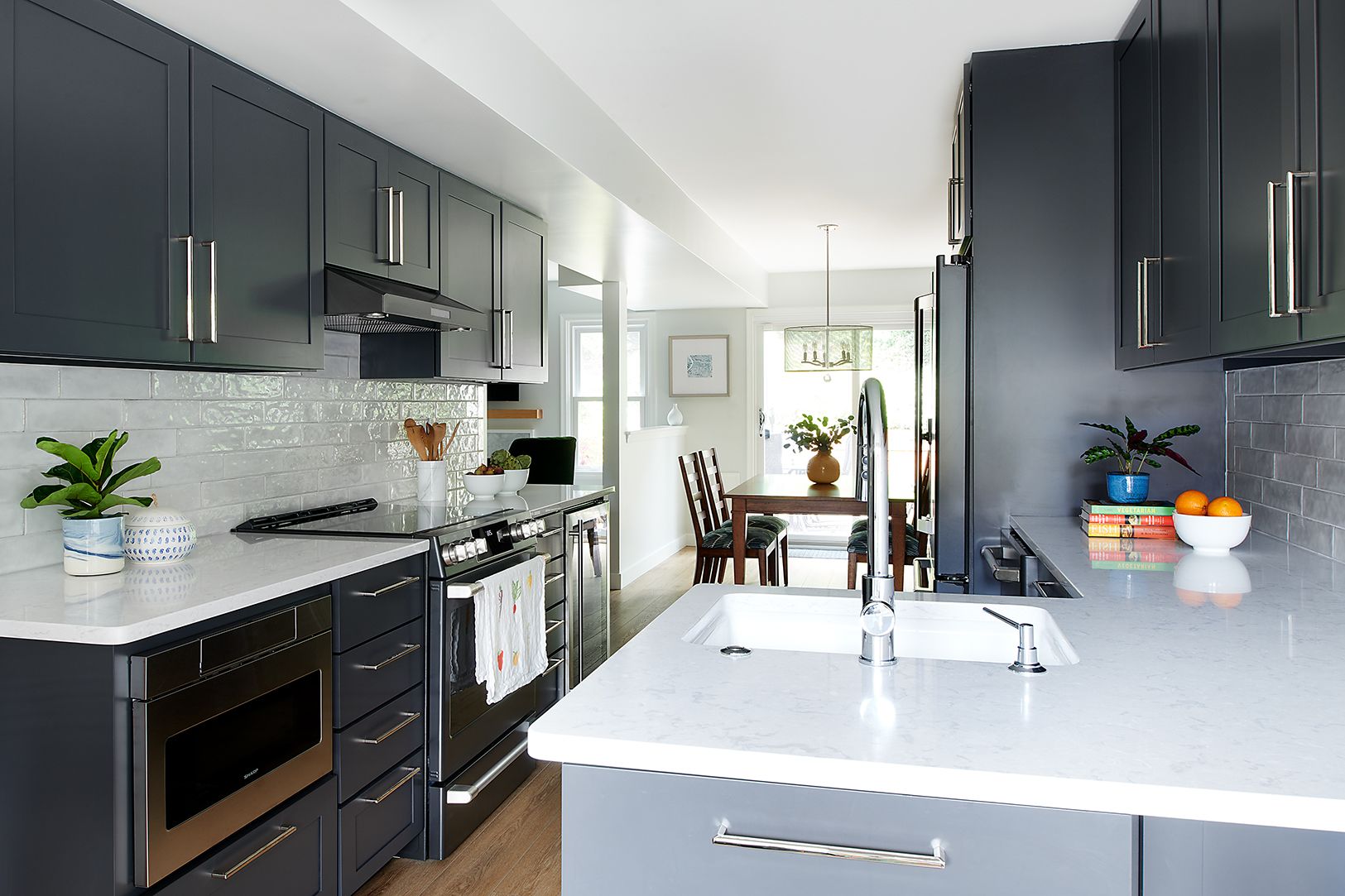Smoke alarms save lives. It’s easy to take smoke alarms for granted, but they can save your life—and your home.
Most townships require remodelers to install interconnected battery backup smoke & carbon monoxide detectors to approve a building permit for any home project. Interconnected alarms guarantee that if fire is detected in one area of the house, every smoke alarm will go off. So, you’ll hear the alarm even if the fire is in the basement and you’re upstairs. Stand-alone detectors only alert you to danger in the area where they are installed.

Smoke alarms can be hardwired. Hardwired smoke alarms run on your home’s electrical system and typically come with battery backup. Carbon monoxide alarms wired-in to your home with battery backup can be interconnected to smoke alarms.
Wireless interconnected photoelectric smoke detectors eliminate the need for a wired connection and operate entirely on batteries. This allows compatible wireless alarms to communicate with each other, alerting you to a problem even when it’s on another floor. The photoelectric smoke sensor reduces the number of nuisance alarms triggered by cooking smoke.
So where should you install them?
- Inside each bedroom within 4’ from the door
- Outside each bedroom within 4’ from the door
- At the top of each flight of interior steps on each floor
- Combination smoke and carbon monoxide detectors within 4’ from each fossil burning fuel appliance; wood burning or gas fireplace, gas or oil furnace, wood, pellet or coal stove, and gas water heater
Incorporate these procedures to keep your family safe.
- Make an escape plan. Know the shortest exit from every floor. Get outside as quickly as possible and have an outside meeting place assigned.
- If cooking smoke sets off your alarm, do not disable it. Press the silence button (if available), wave a towel or newspaper, open a window, or turn on an exhaust fan.
- Test alarms at least once a month. The main issue with battery-powered smoke alarms is that it’s up to you to make sure the batteries are fresh. The same goes for the battery backup on hardwired detectors. Set a reminder so you don’t forget testing and changing batteries.
- Replace alarms when they reach 10 years old, or do not sound when tested.
Most homeowner’s insurance policies will offer a discount on the premium when interconnected battery backup smoke & carbon monoxide detectors are installed. But… Safety is #1 – these detectors are proven to save lives.

